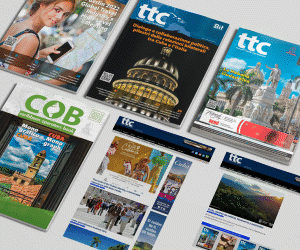
by Frank Martin
In 2023, gradually and visibly, the global tourism industry is moving further and further away from the destructive coronavirus pandemic.
And this occurs without the eliminating by the international leisure industry of certain preventive measures and epidemiological surveillance that can avoid catastrophic returns.
On January 30, the International Health Regulations Emergency Committee (IHR – 2005) on the pandemic issued a report recommending that the Covid-19 epidemy partially continue to be a public health emergency of international concern.
The suggestion did not fall on deaf ears. Although no proposals for extraordinary action were made, the Director General of the World Health Organization, Dr. Tedros Adhanom Ghebreyesus, accepted the Committee’s point of view.
The global public health media also advise caution in this regard. And warned that the Covid-19 could be at a time of the so-called transition.
World health bodies and those dealing with tourism made similar observations without calling for further measures that may be excessive.
But as Dr. Tedros did, everyone appreciated the advice of health experts to avoid negative consequences.
In other words, tourism worldwide is in full recovery, taking care step by step that there is no return.
So-called alternative mechanisms are being explored to maintain global and national attention on COVID-19 while it is withdrawn for good.
The specialists want this surveillance to lead to an international review committee advising on the moment to declare Covid-19 “defeated” and its modalities.
Among the new initiatives are the so-called regulations for the development and authorization of vaccines, diagnostic methods and therapeutic means for a stage in which the emergency is fully controlled.
The universal health system would thus be applied with the methods of Covid-19, some still in use with which humanity defeated lethal epidemics.
The Emergency Committee issued in January a document of recommendations in this regard for the Member States of the World Health Organization.
These are, among others, increasing the use and long-term availability of vaccines, diagnostics and therapies against COVID-19, preparing for potential future outbreaks; work with communities and support research to improve vaccines and post-control conditions for COVID-19.
For the Caribbean and its destinations economically dependent on the tourism industry, these issues are crucial.
There is no doubt that the vacation sector has recovered and continues to do so, a result confirmed by the statistics of the Caribbean Tourism Organization (CTO).
The entity announced that the Caribbean represented 3.1 percent of all arrivals worldwide, with 28.3 million registered tourist visits in 2022. The figure was 52.4 percent higher than that of 2021.
The figures are promising and were endorsed by the World Tourism Organization (UNWTO) in 2022, showing that close to 917 million people traveled the world.
Cruise tourists to the region reached 19.2 million last year, five times more than in 2021.
The Travel Market Report publication published for its part that a good number of Caribbean destinations among these St. Maarten, Turks and Caicos, Puerto Rico, the Dominican Republic and Curaçao exceeded their total numbers of arrivals last year before the pandemic.
“The universal tourism industry has welcomed the good results. But he also believes that neither caution nor preventative health precautions will erase joy. “Rather strengthen it,” said an expert consulted by TTC.

MORE NEWS










